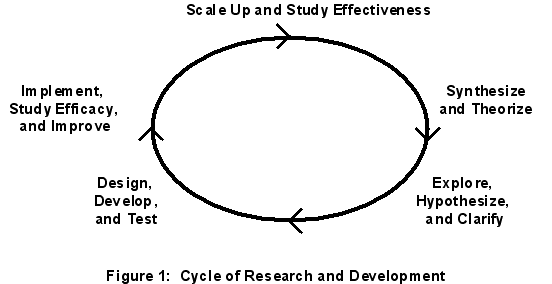Reserve your spot Introduction
Substance abuse is a significant public health issue that affects millions of individuals worldwide. The misuse of drugs and alcohol can have devastating effects on physical health, mental well-being, and social relationships. With the growing recognition of the widespread impact of substance abuse, there has been an increased focus on developing effective treatment strategies to help individuals overcome addiction and achieve lasting recovery.
This study aims to provide a detailed analysis of the current trends in substance abuse treatment, including the most commonly used interventions, their effectiveness, and potential areas for improvement. By examining the latest research and clinical practices in the field, we hope to gain a deeper understanding of what works in substance abuse treatment and identify areas in need of further development.
Overview of Substance Abuse Treatment Approaches
Substance abuse treatment encompasses a wide range of interventions aimed at helping individuals reduce or eliminate their use of drugs and alcohol. These interventions can be broadly categorized into three main approaches: behavioral therapies, pharmacological treatments, and holistic interventions.
Behavioral therapies are among the most widely used forms of treatment for substance abuse. These approaches, such as cognitive-behavioral therapy (CBT), contingency management, and motivational interviewing, focus on changing the individual’s thoughts, behaviors, and attitudes related to substance use. By helping individuals develop healthier coping mechanisms and problem-solving skills, behavioral therapies aim to promote long-term abstinence and prevent relapse.
Pharmacological treatments, on the other hand, involve the use of medications to help individuals manage cravings, withdrawal symptoms, and other issues related to substance abuse. Medications such as methadone, buprenorphine, and naltrexone have been shown to be effective in treating opioid addiction, while medications like disulfiram and acamprosate can help individuals with alcohol use disorder maintain sobriety.
Holistic interventions, such as mindfulness-based therapy, yoga, and acupuncture, have also gained popularity in the field of substance abuse treatment. These approaches aim to address the underlying causes of addiction, such as trauma, stress, and mental health issues, through a combination of traditional and alternative therapies.
Effectiveness of Current Substance Abuse Treatment Approaches
Studies have shown that a combination of behavioral therapies and pharmacological treatments can be highly effective in helping individuals overcome substance abuse. For example, a meta-analysis published in the Journal of the American Medical Association found that the combination of CBT and medications like buprenorphine or methadone was more effective in reducing opioid use and preventing relapse than either treatment alone.
Similarly, research has shown that contingency management, which involves providing rewards or incentives for abstinence, can be an effective intervention for individuals with substance use disorder. A study published in the journal Drug and Alcohol Dependence found that individuals who received contingency management in addition to CBT were more likely to achieve and maintain abstinence than those who received CBT alone.
Despite the effectiveness of these interventions, there are still significant challenges in the field of substance abuse treatment. For example, access to evidence-based treatments can be limited in certain regions, leading to disparities in care for individuals with substance use disorder. Additionally, stigma surrounding addiction can prevent individuals from seeking help and receiving the support they need to recover.
Future Directions in Substance Abuse Treatment
As the field of substance abuse treatment continues to evolve, several emerging trends and developments are shaping the future of addiction care. One of the most promising areas of research is the use of digital therapeutics, such as smartphone apps and online platforms, to deliver evidence-based interventions to individuals with substance use disorder. These digital interventions have the potential to increase access to care, improve treatment outcomes, and reduce stigma associated with addiction.
Another promising development in the field is the integration of trauma-informed care into substance abuse treatment. Many individuals with substance use disorder have experienced trauma in their lives, such as physical or sexual abuse, neglect, or exposure to violence. By addressing the underlying trauma that may be driving addictive behaviors, trauma-informed care can help individuals achieve lasting recovery and improve their overall well-being.
In conclusion, substance abuse treatment is a complex and multifaceted field that requires a comprehensive approach to address the diverse needs of individuals struggling with addiction. By incorporating evidence-based interventions, such as behavioral therapies, pharmacological treatments, and holistic approaches, and by continuing to innovate and adapt to emerging trends, we can improve outcomes for individuals with substance use disorder and promote healthier communities.
References:
- National Institute on Drug Abuse. (2021). Principles of Drug Addiction Treatment: A Research-Based Guide (Third Edition). Retrieved from https://www.drugabuse.gov/publications/principles-drug-addiction-treatment-research-based-guide-third-edition
- Substance Abuse and Mental Health Services Administration. (2020). Key Substance Use and Mental Health Indicators in the United States: Results from the 2019 National Survey on Drug Use and Health. Retrieved from https://www.samhsa.gov/data/node/6013
- Volkow, N. D., Koob, G. F., & McLellan, A. T. (2016). Neurobiologic advances from the brain disease model of addiction. New England Journal of Medicine, 374(4), 363-371.
